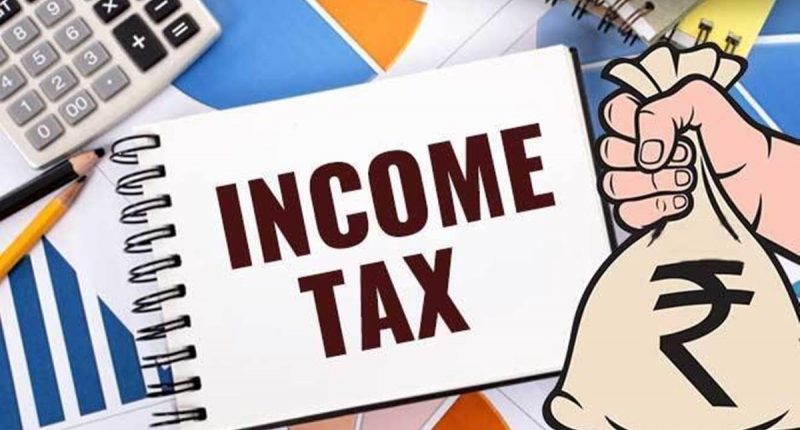With every January comes new hopes and expectations, amongst them being a Union Budget wishlist for businesspersons, salaried individuals, and finance experts alike. Of course, the long-standing goals are always lower tax rates, tax savings, and ease of compliance. This year, too, is no different. Let’s take a look at the biggest expectations surrounding direct and indirect taxes in 2023.
Expectations of the common man
The basic exemption limit has not changed for close to ten years now. The government instead gradually increased the amount of rebate a taxpayer can claim on incomes earned below Rs.5 lakh per annum. A new tax regime was also introduced but did not find favour amongst most taxpayers due to the complicated structure and lack of deductions.
This year, what taxpayers really hope to see is an increase in the basic exemption limit to Rs.5 lakh to relieve taxpayers earning an income up to this extent from having to file their returns and claim a rebate. The 80C deduction limit has also been stagnant for nearly a decade, and taxpayers and experts are hoping to see the Rs.1.5 limit raised to at least Rs.2.5 lakh this year. On the health insurance front, having separate deductions for premiums paid and medical expenses would be a welcome measure.
Another major change taxpayers wish to see is an increase in the Public Provident Fund or PPF limit. At present, individuals can invest up to Rs.1.5 lakh every financial year, and there has been no change in the limit of this popular investment option for years. The Institute of Chartered Accountants of India (ICAI) has recently recommended in the pre-Budget memorandum that this limit be upped to Rs.3 lakh. This move would be particularly advantageous to non-salaried taxpayers who do not have the option of investing via the Employees’ Provident Fund (EPF), coupled with an equal contribution from the respective employer.
The ICAI has also asked for a separate deduction to be allowed for payments relating to other insurance premiums paid, such as home insurance, travel insurance, personal accident insurance, etc., in a bid to push taxpayers to invest in security.
When it comes to House Rent Allowance (HRA), taxpayers enjoy an income tax deduction based on a set of rules that vary depending on whether the taxpayer is from a metro or non-metro city. However, the metro cities in question were only limited to New Delhi, Mumbai, Chennai and Kolkata. Now, experts opine that the ‘50% of basic salary + dearness allowance’ rule should also be extended to other major metro cities such as Bangalore, Ahmedabad, Gurgaon, and Hyderabad, amongst others, given the skyrocketing rents in these cities.
Likewise, an increase in the rent limit under Section 80GG to Rs.10,000 should also be considered, given that rents in most cities in India are now several times the current limit of Rs.5,000.
Moving from rent to the purchase of a home, the financial year ended 2022 was to be the last year for taxpayers to claim a deduction under Section 80EEA, i.e. an additional Rs.1.5 lakh deduction for first-time home buyers. Taxpayers are expecting at least a two-year extension for this deduction.
Similarly, given the booming electric vehicle (EV) industry and the need for sustainable green energy vehicles, taxpayers hope that the deduction under Section 80EEB of Rs.1.5 lakh will also be given a two-year extension.
Finally, to round up the list of major personal tax expectations from Budget 2023 are the requests by senior citizens to make pension earned exempt under the Income Tax Law, given that it’s the only source of income and security for many senior citizens. It is also expected that Budget 2023 will put senior and super senior citizens on a similar footing by increasing the tax exemption slab for senior citizens to Rs.5 lakh as well.
Simplification of the capital gains tax structure
Capital gains tax in India is currently very complicated, with different holding periods mentioned for different classes of assets to identify whether the capital gains earned are long-term or short-term and whether indexation benefits are available. Once identified, there are different tax rates and surcharges applicable to these gains. With this Budget, investors are hoping for a simpler capital gains tax system, which should reduce litigation and disputes arising on the matter.
Uniformity in the corporate tax rate
Currently, different sectors in India are taxed at different income tax rates. To position India as a competitive hub for both manufacturing and services industries, companies are advocating for the introduction of a uniform corporate tax rate of 15%. This would not only bolster the manufacturing sector but also allow the service sector to thrive.
That said, concessional tax regimes are offered for both companies and individuals. However, partnership firms and LLPs are still taxable at a flat rate of 30%. Hence, the government could consider introducing a similar concessional rate for them.
Clarity on cryptocurrency laws
In addition to modifying the tax slabs and rate structure, individuals and businesses alike are hoping to gain clarity in this Budget on cryptocurrency laws in India. While the government introduced taxes on digital assets for the first time last year, there is an absence of regulatory guidelines in the industry. The implementation of structured laws surrounding the trade of digital assets will protect investors and prevent any illegal dealings from taking place.
The main aim of the government in this Budget should be to widen the taxpayer base rather than impose stringent rules and surcharges on existing taxpayers. India has a very low taxpayer base, and the government should make optimum use of technology in order to change this. Potential taxpayers must be encouraged to file their tax returns, a move that will take slightly more effort in light of the recent pandemic and rising inflation. Measures such as simplification of the existing tax structure, the merging of surcharges into the tax rate, or the introduction of a flat tax rate might help to widen the taxpayer net.
An overhaul of the indirect tax system?
It’s been over five years since GST was implemented in India, and every year since then, GST taxpayers have been hit by a series of unending amendments to the GST law. Some of the biggest reforms in GST have been by way of introducing stringent restrictions on input tax credit (ITC) claims and by introducing the e-invoicing system.
Given how well both the GST and e-invoicing law has been working for both businesses in India and the government, it is unlikely that Budget 2023 will see an overhaul of the indirect tax law or even any major reforms. Though there has been pressure to merge the 12% and 18% tax slabs in order to decrease the total number of slabs under GST, it is unlikely that Budget 2023 will see this move happen.
Instead, what businesses can expect to see in Budget 2023 with regard to indirect taxes are amendments to the GST Act based on recent recommendations by the GST Council in the Council meetings, especially around matters surrounding the decriminalisation of offences under the GST law.
Besides certain tweaks to the GST law, there could be rate rationalisation to correct matters such as the inverted duty structure on certain goods and services.
There have also been certain industry expectations on the GST front, such as a uniform GST rate levy of 12% on all hotel rooms, as well as a full set-off of input tax credit. The EV industry has asked for a 5% GST to be levied on lithium-ion batteries as against the existing rate of 18% in a bid to increase demand for electric vehicles through lower tax rates and hence lower prices. The healthcare sector, too, is expecting to see a decrease in the GST rate on medical insurance premiums from 18% to 5%, given the pressing need for insurance in a post-pandemic world.
There have also been several long, drawn-out disputes and litigations under the Customs law. This Budget, it would be a worthwhile move for the government to launch a one-time amnesty scheme for customs to settle these prolonged disputes.
For any clarifications/feedback on the topic, please contact the writer at athena.rebello@cleartax.in

I’m a Chartered Accountant by profession and a writer by passion. ClearTax lets me be both. I love travel, hot tubs, and coffee. I believe that life is short, so I always eat dessert first. Wait.. life is also too short to be reading bios… Go read my articles!





